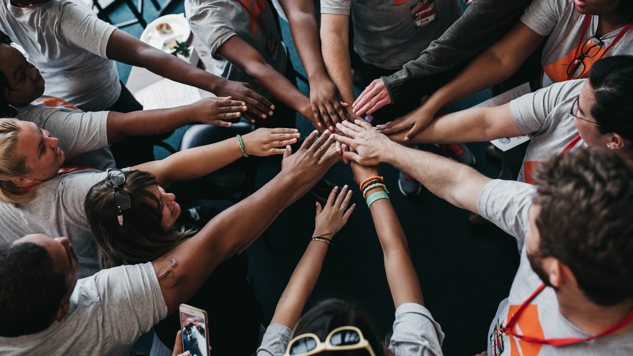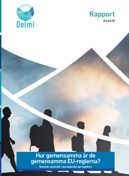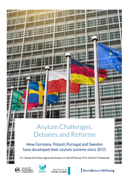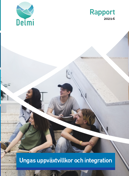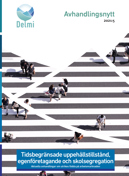NIEM identified gaps in refugee integration policies in 14 participating countries within EU Member states during the period of 2016 to 2021. The countries included in the project are Bulgaria, Czechia, France, Greece, Hungary, Italy, Latvia, Lithuania, Netherlands, Poland, Romania, Slovenia, Spain, and Sweden. The cross-country comparison is based on 120 indicators and covers 12 identified dimensions ranging from general conditions to the legal, socio-economic and socio-cultural aspects of integration in 2021.
NIEM results show how divergent the quality of governments’ efforts is across the 14 participating countries, among which Sweden ranks the highest. Sweden is the country with the longest tradition in the reception of refugees among the countries in the NIEM study, and the one with the most established state provided welfare system. The difference in policy provisions and their implementation in some dimensions like bridge-building, vocational training and employment between Sweden and the average of other NIEM study countries is also remarkable. However, this is not always reflected in the outcomes of refugees in those dimensions.
On the other hand, the FOCUS project aims at mapping refugee-receiving society relations. A random survey and focus group interviews were conducted among Syrian refugees who arrived after 2013 and the receiving society members in the main refugee-receiving cities of four countries: Croatia, Germany, Jordan, and Sweden. The random survey (n=595 for Syrian refugees and n=1,314 for receiving society members) and separate focus group interviews (n=12 for each of both groups) were conducted in 2019 and 2020. The findings of these studies informed practice-oriented interventions in Austria, Denmark, Germany, Sweden, and the United Kingdom. Ultimately this work led to the development of the FOCUS Living Well Together Resource, a guide to help policy makers and practitioners promote integration.
FOCUS results showcases some of the main perceived difficulties for integration. The participants of the study consider racism and discrimination as an obstacle for integration. The length of asylum applications was also mentioned as a limitation for refugees’ participation in society. The understanding of refugees’ views on women’s rights as a barrier for intergroup relations was also seen as problematic for integration. The segregation and increasing polarization in Swedish society was also considered to be a problem for social integration.
Considering the results of these projects, the authors make the following recommendations:
- The engagement and coordination of public and private sector employers in introduction and employment programs is fundamental to provide training and suitable employment opportunities.
- There is a need for a long-term commitment beyond the two-year duration of the introduction program to promote integration.
- Faster and more flexible approaches to the recognition of qualifications is needed to facilitate access to suitable employment for refugees.
- Inclusive community-level groups could be supported to organize activities that can bring refugees and receiving society members together by encouraging intergroup contact on equal terms, presenting narratives that offer alternative images to stereotypes.
- Providing systematic training about the role and mechanisms of racism and discrimination would help increase awareness among the recipients and, ultimately, reduce discriminatory practices.
- Language and cultural interpreters in a broader range of institutions are needed to ensure better communication and reduce discrimination.
About the Authors
The authors of the policy brief are Nahikari Irastorza, and Sayaka Osanami Törngren, both Senior researchers at the Malmö Institute for Studies for Migration, Diversity and Welfare, Department of Global Political Studies, Malmö University.
Delmi Policy Brief 2023:1 is published on February 3, 2023.
Photo by Camylla Battani
